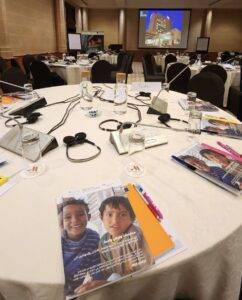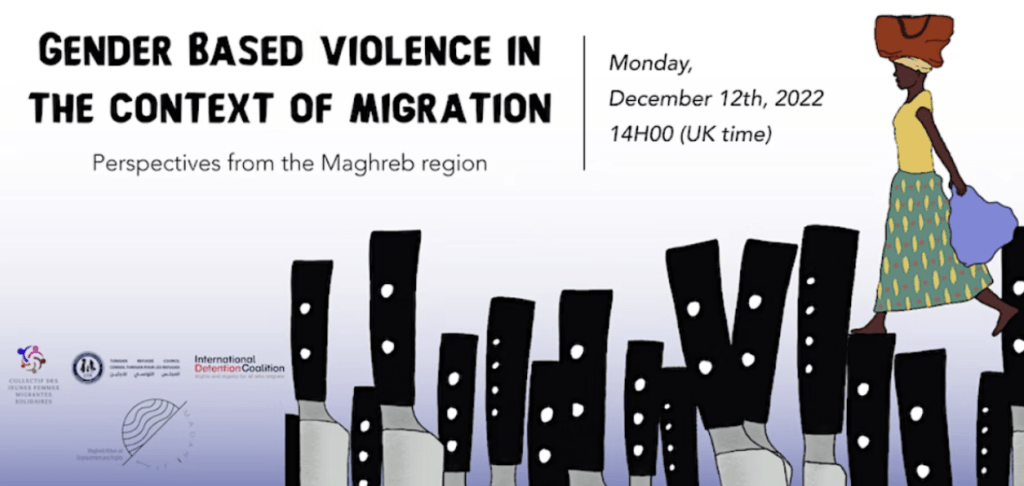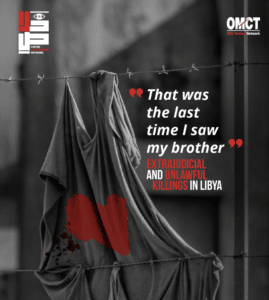IDC would like to extend its heartfelt condolences to Turkey and Syria following the devastating earthquake in February 2023, that claimed the lives of thousands of people in both countries and affected the whole region.
April 2023 Updates: IDC’s MENA Regional Programme
Written by Asma Nairi, IDC MENA Regional Coordinator
Ending 2022 with a successful regional event
IDC and UNICEF organised a 3-day workshop on “MENA Regional Children on the Move Cross Border Continuum of Protection and Care” in Amman, Jordan in November 2022. 8 government delegations from the MENA region attended, in addition to regional representatives of IOM and UNHCR, and representatives of the governments of Turkey and Catalonia, Spain.

The workshop was a result of a year-long collaboration between UNICEF and IDC to implement a regional project on the protection of refugee and migrant children. Two policy briefs were introduced, one focusing on Whole-of-Government and Whole-of-Society Approaches, highlighting its critical role in supporting children on the move by providing promising practices from the region; and the other on Community and Family Based Alternative Care Initiatives, which highlights the benefits of supporting policies and programs for refugee and migrant children to live in community settings, while their migration matters are being resolved. The policy brief aimed to highlight promising practices and opportunities and included specific examples of informal alternative care arrangements in the MENA region. The workshop was a successful step towards enhancing awareness and collaborative work with governments in the region towards increasing the protection of children on the move.
16 Days of Activism – Webinar on violence against women and girls in detention
In the frame of the 16 days of activism, IDC MENA participated in a webinar coordinated by MADAR network (The Maghreb Action on Displacement and Rights) in December 2022, along with other civil society organisations. IDC focused on the experience of migrant women and girls in detention, and their protection needs and concerns.

IDC highlighted the essential role of civil society in protecting migrant women and girls from violence, including sharing examples from other organisations working on the protection of migrant women. IDC provided detailed recommendations to support women, including conducting research, raising awareness, advocating for measures to end discrimination and exploitation, developing gender-responsive policies, providing gender-specific services (including health and reproductive care), and ensuring access to information during the migration journey in their preferred languages.
An interview with the World Organisation Against Torture (OMCT) Libya
IDC aims to highlight the critical and important work that our partners and members are doing in the region to advocate for migrant and refugee rights, and end immigration detention. In this newsletter, we feature an interview with one of the organisations working in Libya, and the broader region.
OMCT is the largest global NGO taking a stand against torture while protecting human rights defenders worldwide with over 200 members in 90 countries. In Libya, OMCT works on human rights issues faced by migrants, refugees, and people seeking asylum in official and unofficial detention centres. OMCT has been working in collaboration with local civil society organisations to document these violations, report them to the relevant international bodies, and provide them with legal support.
The Libya project, which founded the Libyan Anti-Torture Network (LAN) in 2021, is one of OMCT’s most prominent projects working on the documentation of grave human rights violations, including inhumane detention conditions of migrants, refugees and people seeking asylum, as well as on advocacy at the global level. LAN brings together a group of civil society organisations from across Libya, which OMCT supports by building their technical and organisational capacities to better address challenges faced by communities on the ground in Libya.
Main Challenges in Libya
- Domestic Libyan legal framework criminalises irregular migration and does not provide humanitarian safeguards for people seeking asylum and people in fear of prosecution in their countries of origin.
- Political and military instability in Libya greatly impacts the lives of migrants and refugees, and their access to justice.
- Access to some detention facilities and prisons is limited, thus documentation and monitoring of the situation becomes extremely challenging.
- Armed groups affiliated to official entities are involved in human trafficking networks, resulting in the spread of torture, sexual exploitation and smuggling.
Opportunities
Capacity building programs are vital as they help improve the understanding of documentation and advocacy at the international level.
- Education and promotion of human rights will help Libyan civil society in building a more peaceful and safe society.
- Advocating for domestic legal reform in compliance with International humanitarian law (IHL) and International human rights law (IHRL) will enforce respect for human rights in Libya, and better fight impunity.
Key Highlights and Achievements
- The Libyan Anti-Torture Network was created with the aim of documenting and highlighting torture, arbitrary detention, enforced disappearance, unlawful killings and other serious human rights violations committed against Libyans and migrants inside and outside of detention through targeted advocacy activities.
- The joint thematic report of the OMCT and the LAN published in 2022 titled “That was the last time I saw my brother” is the first report focusing on extrajudicial and unlawful killings in Libya.
- The LAN and OMCT regularly issue statements on the detention of migrants in Libya, including: Rebranded governmental approach, unchanged inhuman practices, New patterns of human rights violations and absence of accountability, and Head of government recognises inhumane detention conditions of migrants
